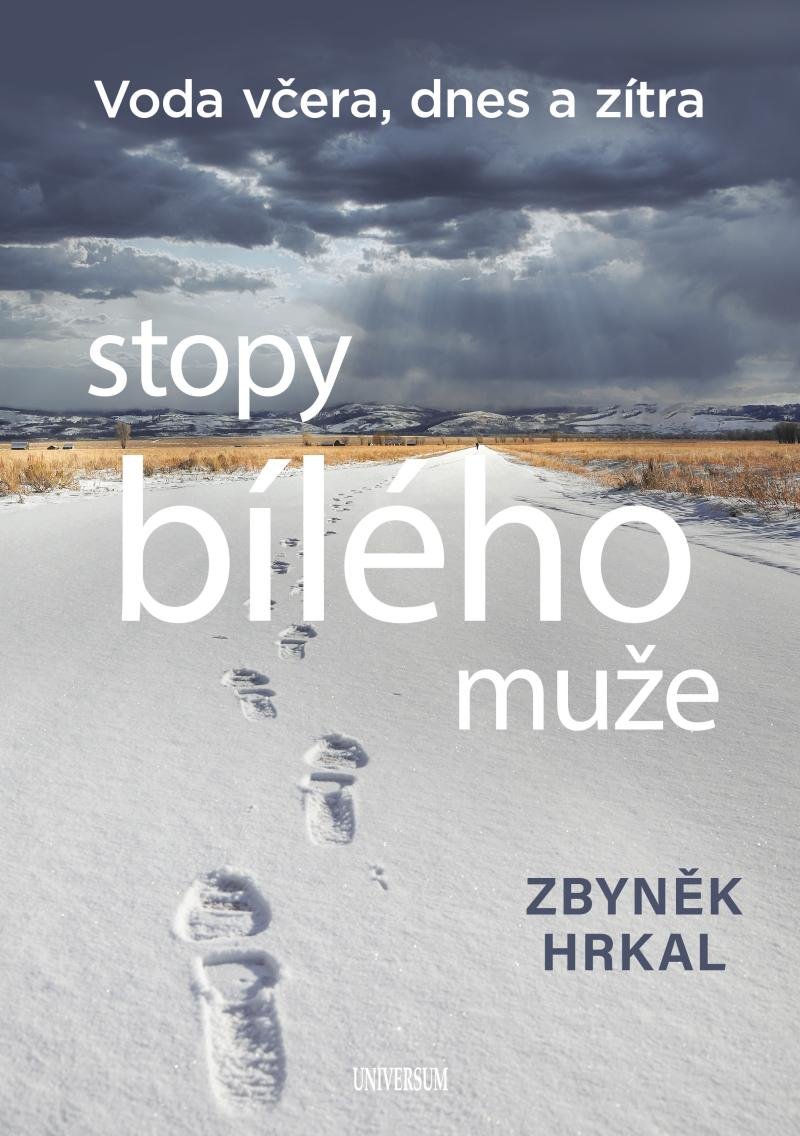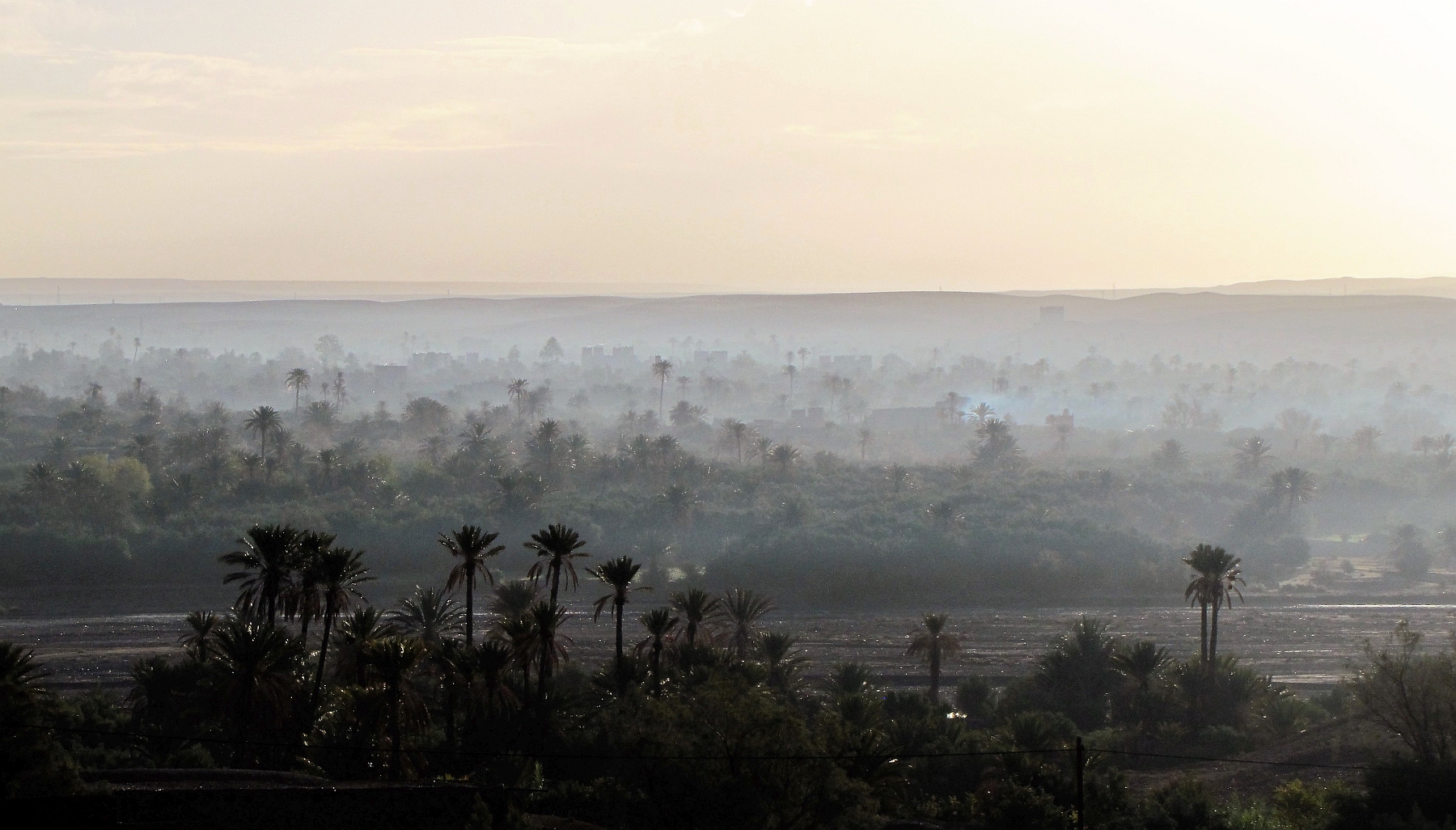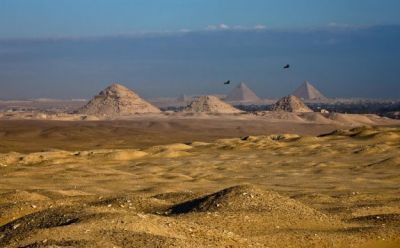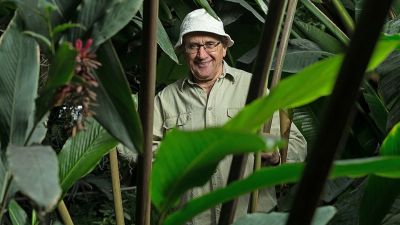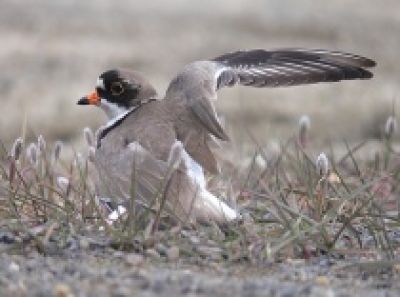“Of all the countries I have visited, Israel is among the most exceptional. It’s admirable that in such unfavourable conditions – both natural and political – they’ve built such a well-functioning society,” says hydrogeologist Zbyněk Hrkal, who has travelled to an incredible 79 countries around the globe.
Hrkal’s latest book, Stopy bílého muže (Footprints of a White Man), was published last year by Universum – the culmination of the author’s “water trilogy” following the titles O lidech a vodě (On People and Water, 2015) and Voda včera, dnes a zítra (Water Yesterday, Today and Tomorrow, 2018). This time – and even slightly politically incorrect these days – he above all looks at water management problems in postcolonial countries he personally had the opportunity to visit, providing enticing and novel descriptions of conditions in places as varied as South Africa, Mauritius, Saudi Arabia, Morocco, Mexico, Cambodia and Nepal.
“As a hydrogeologist, I’m most interested in technical solutions. I am convinced that there is no water management problem in the world that cannot be solved. But the big problem is a lack of education,” the associate professor explains.
Water and the future of civilization
In the book, Hrkal comments on historical and political contexts. “The way water is used is increasingly deciding whether our civilisation will continue to exist or not. While all problems with a lack of this resource have technical solutions, they are financially and organisationally very difficult. Therefore, they require an economically very strong and resilient society,” Hrkal writes. Hrkal is not just a scientist and teacher at the “natural sciences faculty,” but also works at the environment ministry’s T.G. Masaryk Water Research Institute in Prague 6.
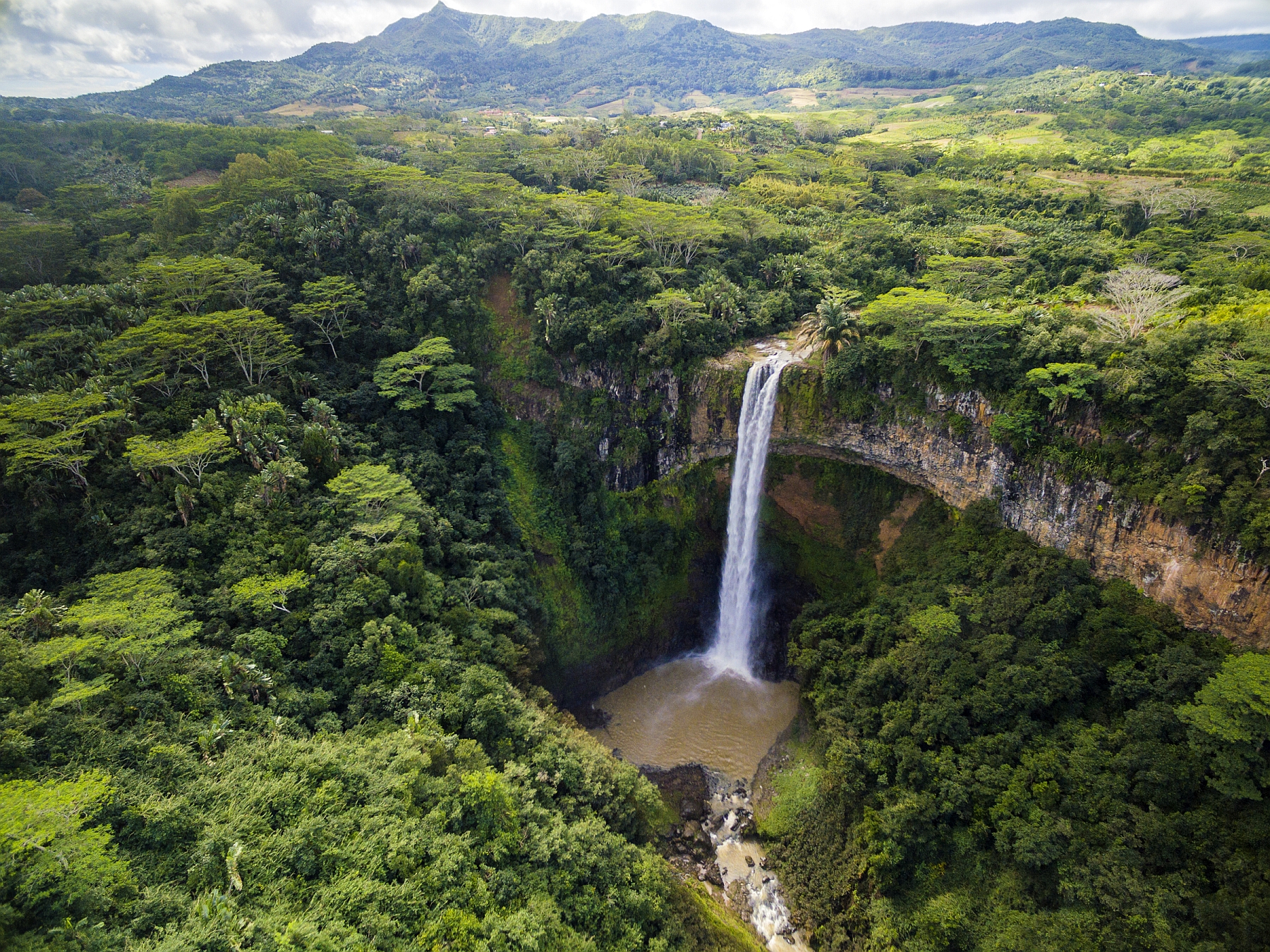
Chamarel waterfull on Mauritius. Shutterstock.
“When you’re looking for solutions to a lack of water, it isn’t possible to point your finger at a single technology or action. Perfect water management under the conditions of stress that nature has prepared for us can only function as a set of mutually connected activities affecting all areas of our lives, starting with legislation and economics through agriculture and education. And it ends up in everyone’s personal lives,” Hrkal emphasises. With a number of colleagues, Hrkal is the co-author of the outdoor exhibition Voda & civilizace (Water and Civilisation), whose panels have been seen by tens of thousands of people around the Czech Republic.
One of the exhibition’s most interesting posters compared water usage per person per day in litres. “While consumption in the Czech Republic fell over the years from 300 litres to 89 litres today, in countries such as Saudi Arabia, which has its own shortage of water sources, it’s more than 500 litres per day! It’s fascinating how much water they waste water there,” Hrkal says.
(Almost) 80 countries and back
Hrkal knows Planet Earth perfectly. How many countries has he been to? “I counted 79 countries [at last count]. I’m used to travelling a lot; I’m taking the pandemic and the current restrictions badly… The last time I traveled was to Cambodia and Vietnam, which coincidentally is the place of my first foreign expedition as an apprentice in the 1980s,” Hrkal says, recalling his first study in 1986.
“Another country I love is Namibia. I enjoy how they grew out of German colonial influence, and how the local people dealt with it with tremendous grace,” he says. The Himba are another indigenous people he has visited; Himba women wear clay on their heads, which is why they are frequently photographed, with red-brown hairstyles with remarkable hardened braids and hair.Which regions have interested him the most? “Of all the countries I have visited, Israel was a highlight. It’s admirable that in such unfavourable conditions - both natural and political - they’ve built such a functioning society,” the 63-year-old scientist says about Israel’s well-known water conservation measures in drier areas. In second place, without hesitation, he mentions mountainous Nepal. “People there live in great poverty, but when you speak to them, they’re happy, they appreciate life; and that shows us that happiness is not found only in material possessions.” He adds that he was interested in how they ensure a supply of good quality drinking water in the Himalayas.
Research, photography, writing
What’s he working on next? “I’ve got a detective novel I’m writing at the moment. I alternate between topics: thrillers and then literary facts. I’ve already written nine books,” he says. 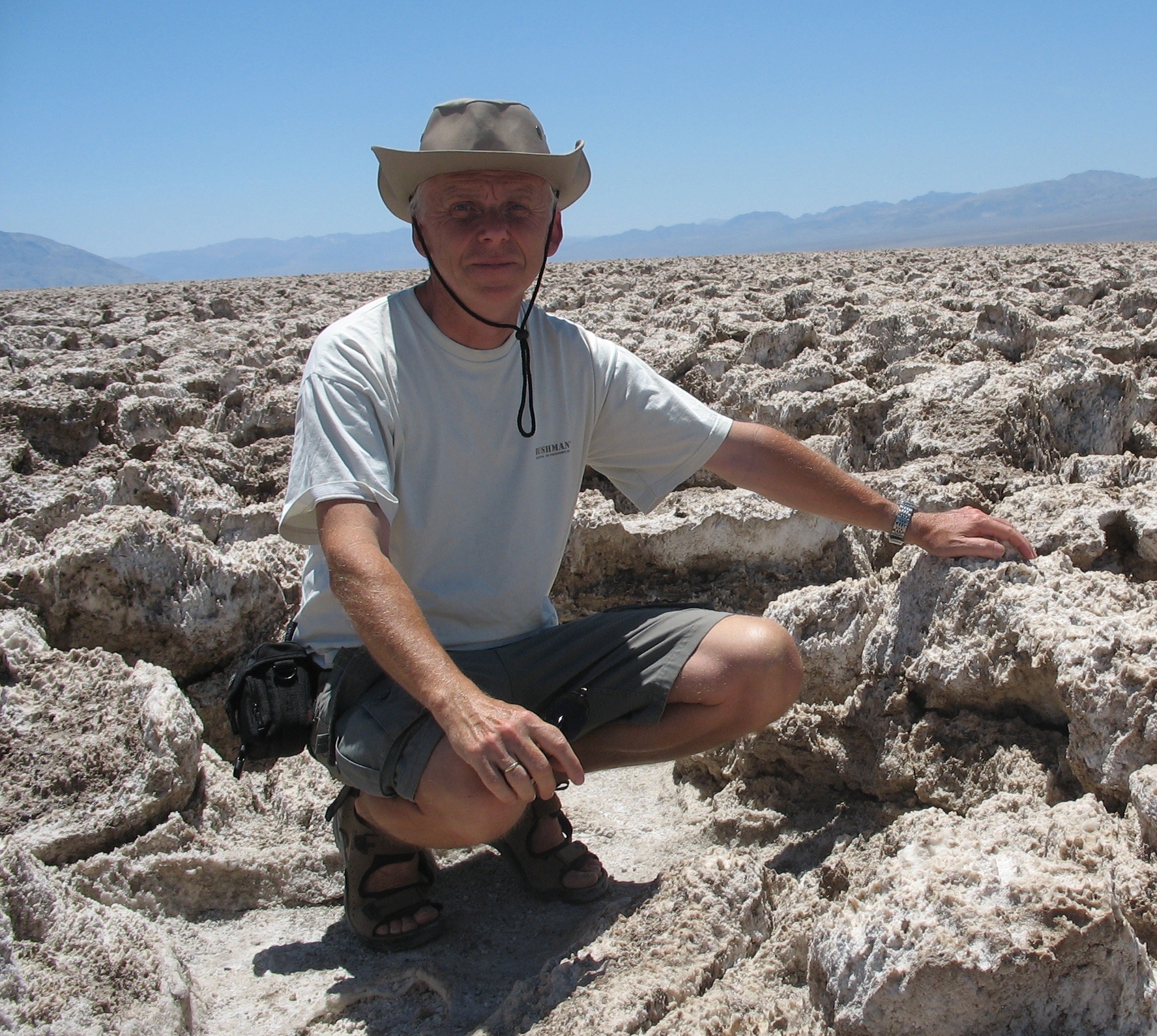 And Hrkal has a message for readers of Forum magazine: “Look at the world optimistically, even though the media rolls out one catastrophe and horror after another… I don’t want to paint things black...”In addition to hydrogeology, he also is a photographer – of landscapes and people. He enjoys it tremendously. “But a lot has changed. I’m already running into restrictions due to the GDPR, which hopefully won’t reach all corners of the world,” he laughs. Asked to mention an area that has serious problems with water management, he puts Africa at the forefront. But that is not to say that there aren’t plenty of other areas that have grown arid in the long-term, but tropical parts of the continent are facing the birth of megacities without the necessary infrastructure.
And Hrkal has a message for readers of Forum magazine: “Look at the world optimistically, even though the media rolls out one catastrophe and horror after another… I don’t want to paint things black...”In addition to hydrogeology, he also is a photographer – of landscapes and people. He enjoys it tremendously. “But a lot has changed. I’m already running into restrictions due to the GDPR, which hopefully won’t reach all corners of the world,” he laughs. Asked to mention an area that has serious problems with water management, he puts Africa at the forefront. But that is not to say that there aren’t plenty of other areas that have grown arid in the long-term, but tropical parts of the continent are facing the birth of megacities without the necessary infrastructure.
| Associate Professor Zbyněk Hrkal |
| Zbyněk Hrkal works at the Institute of Hydrogeology, Engineering Geology and Applied Geophysics at the Faculty of Science and at the T.G. Masaryk Water Research Institute. He graduated from the Faculty of Science and began his career at the Central Institute of Geology. In 1991 he left for France. Upon returning he was named associated professor at Charles University in 2003.\. Hydrogeology has taken him all over the world: to the deserts of Asia and Africa, as well as to the Amazon and the jungles of Asia. He is the author of more than 100 studies with more than 1,500 citations. He also writes for fun: He wrote a trilogy about people and water (2015, 2018 and 2020) and also writes fiction – exotic stories and thrillers. |


